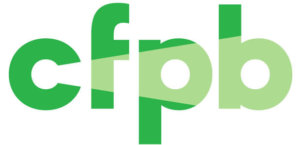Mar. 29, 2024: CFPB Updates
 CFPB Takes Action to Halt False Claims of ‘Free’ International Money Transfers
CFPB Takes Action to Halt False Claims of ‘Free’ International Money Transfers
the Consumer Financial Protection Bureau (CFPB) issued a new circular warning remittance transfer providers that false advertising about the cost or speed of sending a remittance transfer can violate federal law. Companies in the marketplace are charging junk fees on international money transfers and making false claims about the speed of transfers. The circular highlights several marketing practices relating to sending international money transfers that may violate the Consumer Financial Protection Act’s (CFPA) prohibition on deceptive acts or practices. This prohibition is enforced by the CFPB, states, and other regulators. Guidance in the circular applies both to traditional providers of international money transfers and to “digital wallets” that offer the capability to send money internationally from the United States.
Consumers in the United States send tens of billions of dollars in international remittances every year, often sent by immigrants to family and friends living abroad or to Americans living temporarily abroad, such as students. The CFPB administers and enforces the Remittance Rule under the Electronic Funds Transfer Act, the first and only federal regulation that provides disclosures and other important consumer protections for people who send international remittances from the United States. The CFPB also enforces the Consumer Financial Protection Act, which prohibits unfair, deceptive or abusive acts and practices across consumer finance. Remittance providers may be liable under the CFPA for deceptive marketing practices regardless of whether the provider is in compliance with the disclosure requirements of the Remittance Rule. Read more
Today, federal and state agencies, including the Consumer Financial Protection Bureau (CFPB), released agency-specific action statements on tech capacity. These statements reflect concrete actions to increase tech capacity, including actively hiring technologists – which will help enforce the laws on the book and design remedies that work for consumers, workers, small businesses, and others in the digital era.
Amid a rapidly evolving tech ecosystem – including the wave of attention on generative AI – CFPB technologists work in interdisciplinary teams across the Bureau to help ensure that the rights of consumers are not being violated. This includes helping to identify emerging technology developments, spot potential issues, and where appropriate, help enforce the law and develop lasting remedies.
- The HMDA modified loan/application registers (LARs) are now available for each institution that filed HMDA data collected in 2023. The modified LARs provide each financial institution’s loan-level HMDA data, as modified to protect applicant and borrower privacy in accordance with the Consumer Financial Protection Bureau’s final policy guidance on the disclosure of HMDA data. Users also have the ability to download one combined file that contains all institutions’ modified LAR data.
- The modified LARs can be accessed here: https://ffiec.cfpb.gov/data-publication/modified-lar.
The Home Mortgage Disclosure Act (HMDA) Modified Loan Application Register (LAR) data for 2023 are now available on the Federal Financial Institutions Examination Council’s (FFIEC) HMDA Platform for approximately 5,089 HMDA filers. The published data contain loan-level information filed by financial institutions and modified to protect consumer privacy.
To increase public accessibility, the annual loan-level LAR data for each HMDA filer are now available online. Previously, users could obtain LAR data only by making requests to specific institutions for their annual data. To allow for easier public access to all LAR data, the Consumer Financial Protection Bureau’s 2015 HMDA rule made the data for each HMDA filer available electronically on the FFIEC’s HMDA Platform. In addition to institution-specific modified LAR files, users can download one combined file that contains all institutions’ modified LAR data. Read more